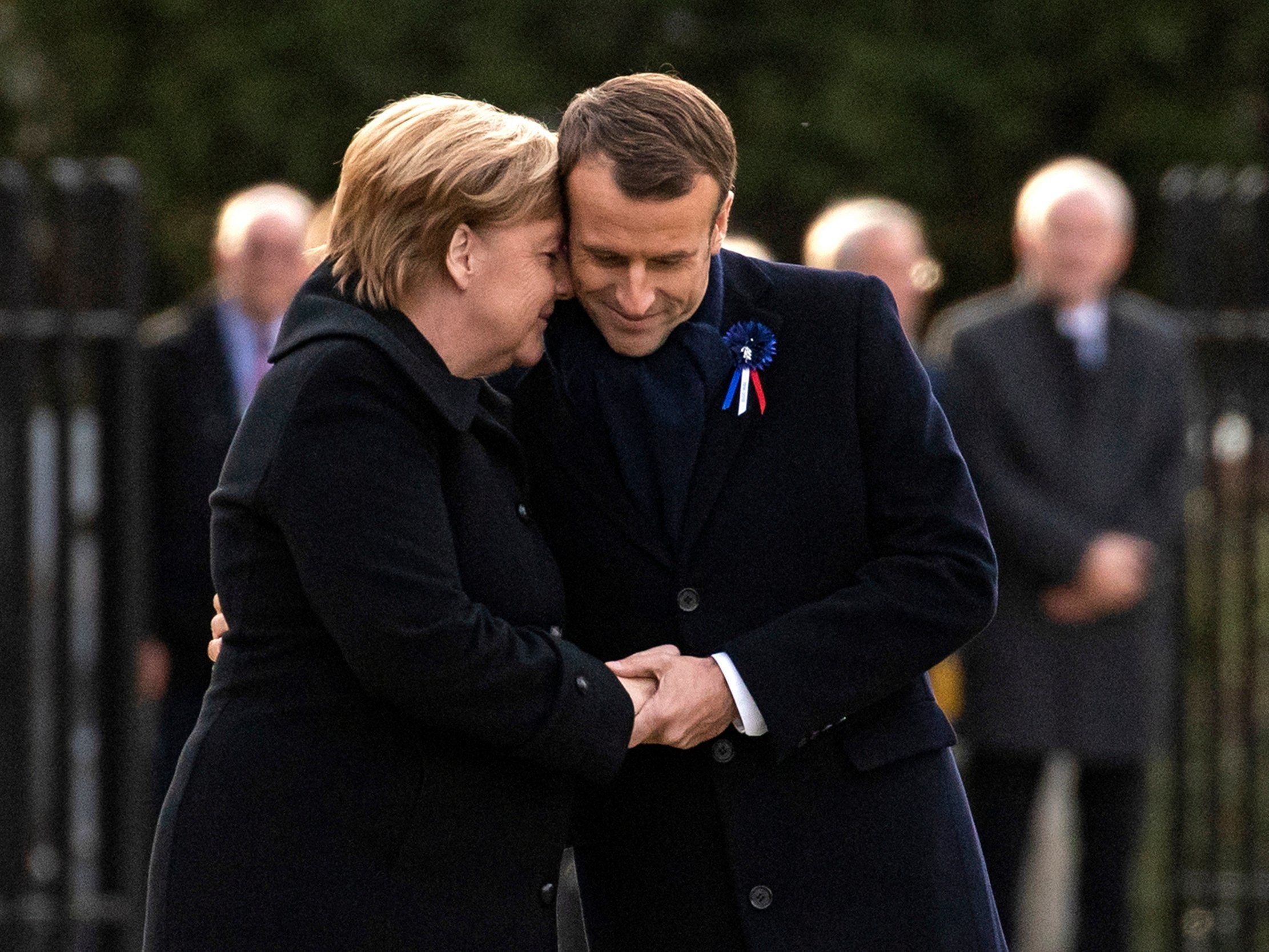Your support helps us to tell the story
From reproductive rights to climate change to Big Tech, The Independent is on the ground when the story is developing. Whether it's investigating the financials of Elon Musk's pro-Trump PAC or producing our latest documentary, 'The A Word', which shines a light on the American women fighting for reproductive rights, we know how important it is to parse out the facts from the messaging.
At such a critical moment in US history, we need reporters on the ground. Your donation allows us to keep sending journalists to speak to both sides of the story.
The Independent is trusted by Americans across the entire political spectrum. And unlike many other quality news outlets, we choose not to lock Americans out of our reporting and analysis with paywalls. We believe quality journalism should be available to everyone, paid for by those who can afford it.
Your support makes all the difference.The European Commission has said it is “delighted” that the leaders of France and Germany have backed the creation of a “real” EU army.
A spokesperson for the commission’s president Jean-Claude Juncker said he was “pleased” that the argument for the force seemed to be “going in our direction”.
Addressing the European Parliament on Tuesday Angela Merkel said she supported a “real, true” European army, echoing an identical call by her French counterpart Emmanuel Macron the week before.
Speaking on Wednesday, the commission’s spokesperson tried to attribute credit for the idea to Mr Juncker, noting that he had previously endorsed such a force.
“Let me clarify that the first one who spoke about the EU army four years ago was someone called Jean-Claude Juncker,” they said.
“Memory is short nowadays in Brussels and the capitals but people here present, you are aware of who launched this idea.”
The spokesperson added: “We are delighted that both the president of the French republic and the German chancellor, with a few days interval, publicly backed this idea.
“We have many times explained how we see these things: this is a commission that wants Europe to have a meaningful defence identity.”
The spokesperson noted that the commission had “proposed a significant increase in new EU resources for defence” in the coming budget.
The proposals for a European military have triggered a new spat with US president Donald Trump, who took offence to a suggestion by Mr Macron that such a force could ensure Europe’s security in the shadow of the United States.
The French president made his call during a radio interview last week: “We have to protect ourselves with respect to China, Russia and even the United States of America.
Let me clarify that the first one who spoke about the EU army four years ago was someone called Jean-Claude Juncker
“We will not protect the Europeans unless we decide to have a true European army.”
He added: “When I see President Trump announcing that he’s quitting a major disarmament treaty which was formed after the 1980s Euro-missile crisis that hit Europe, who is the main victim? Europe and its security.”
The suggestion angered Mr Trump, who sent a series of hostile tweets about the comments.
On Tuesday the US president tweeted: “Emmanuel Macron suggests building its own army to protect Europe against the US, China and Russia. But it was Germany in World Wars One & Two – How did that work out for France? They were starting to learn German in Paris before the US came along. Pay for Nato or not!”

The election of Mr Trump to the White House appears to have given more urgency to the cause of boosting the EU’s defence capabilities, with leaders warning they cannot simply rely on the United States.
Commission president Mr Juncker said last year that “deference to Nato can no longer be used as a convenient alibi to argue against greater European efforts”.
In 2016, then defence secretary Sir Michael Fallon said the UK would use its veto to stop the creation of any EU army. However, the UK is leaving the EU, and will therefore no longer have any say in its governance.
A number of proposals have been put on the table for how EU nations could cooperate more closely on defence. The European Commission has previously said existing closer defence cooperation “is not about creating an EU army”.
Thirty-four joint missions by member states have been launched under the EU flag since 2003 under the bloc’s common security and defence policy.
Under the “permanent structured cooperation” initiative legislated for in 2009 and activated in 2017, 25 of the 28 armed forces are in the process of stepping up cooperation between their militaries. Denmark, Malta and the United Kingdom have decided to opt out of the voluntary system.

Join our commenting forum
Join thought-provoking conversations, follow other Independent readers and see their replies
Comments